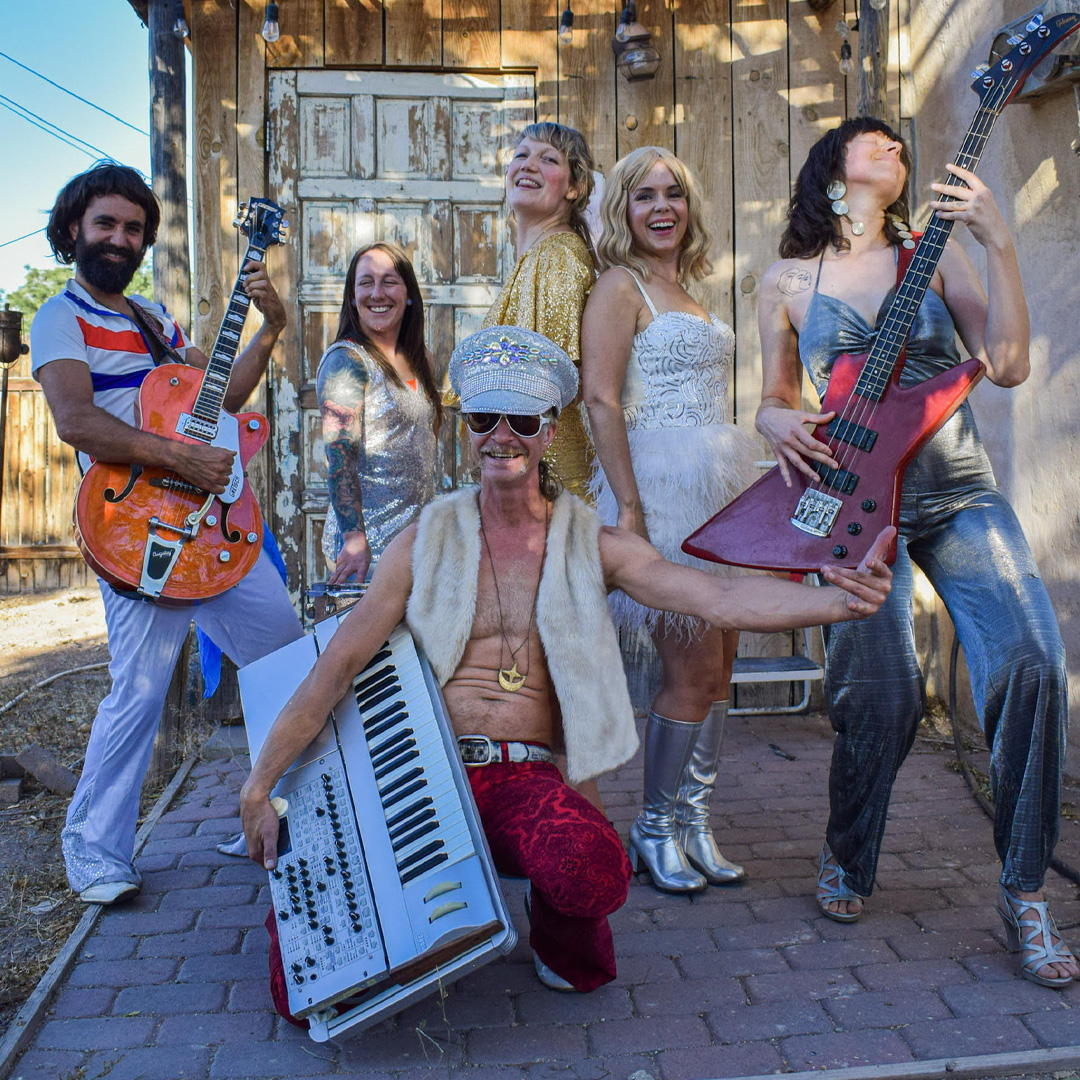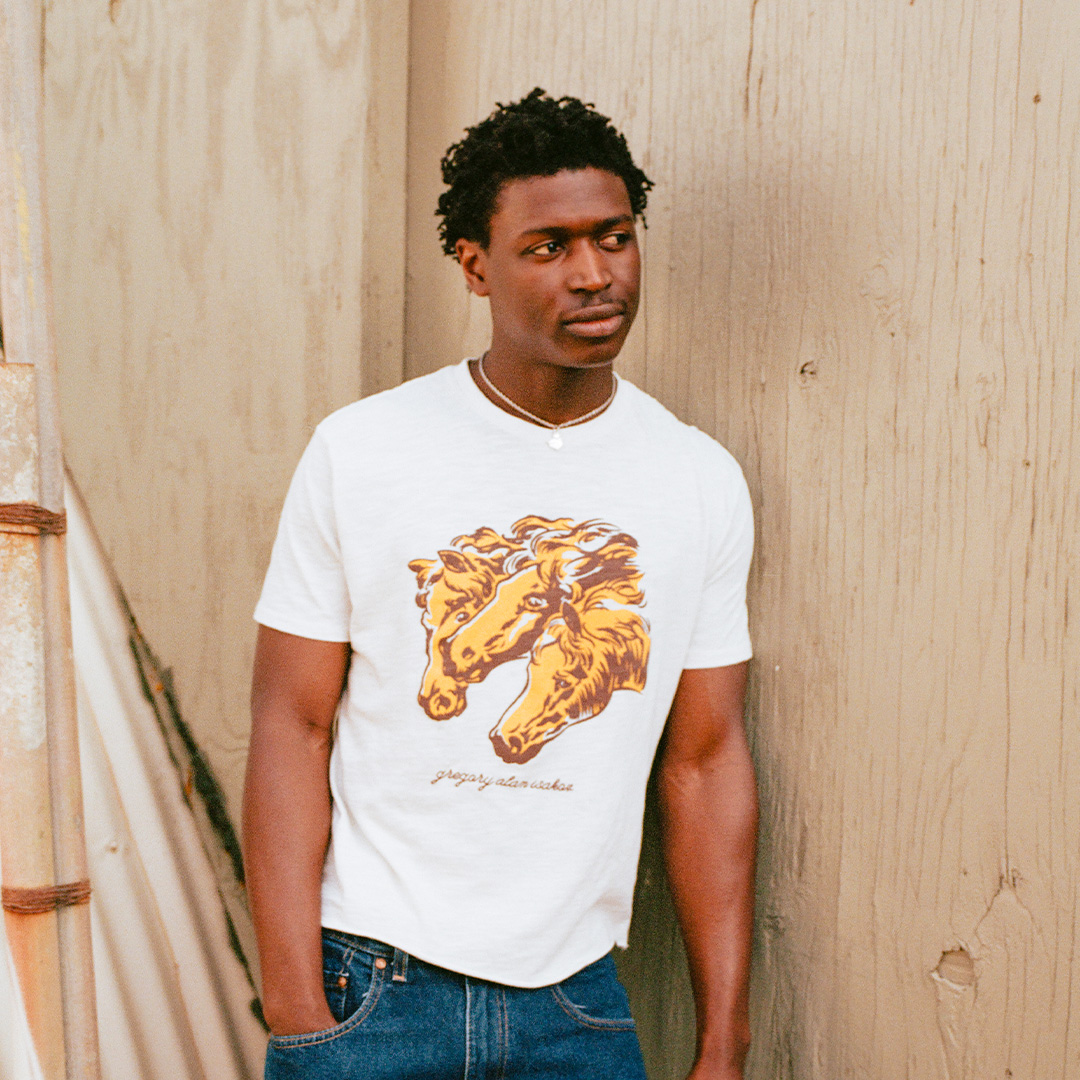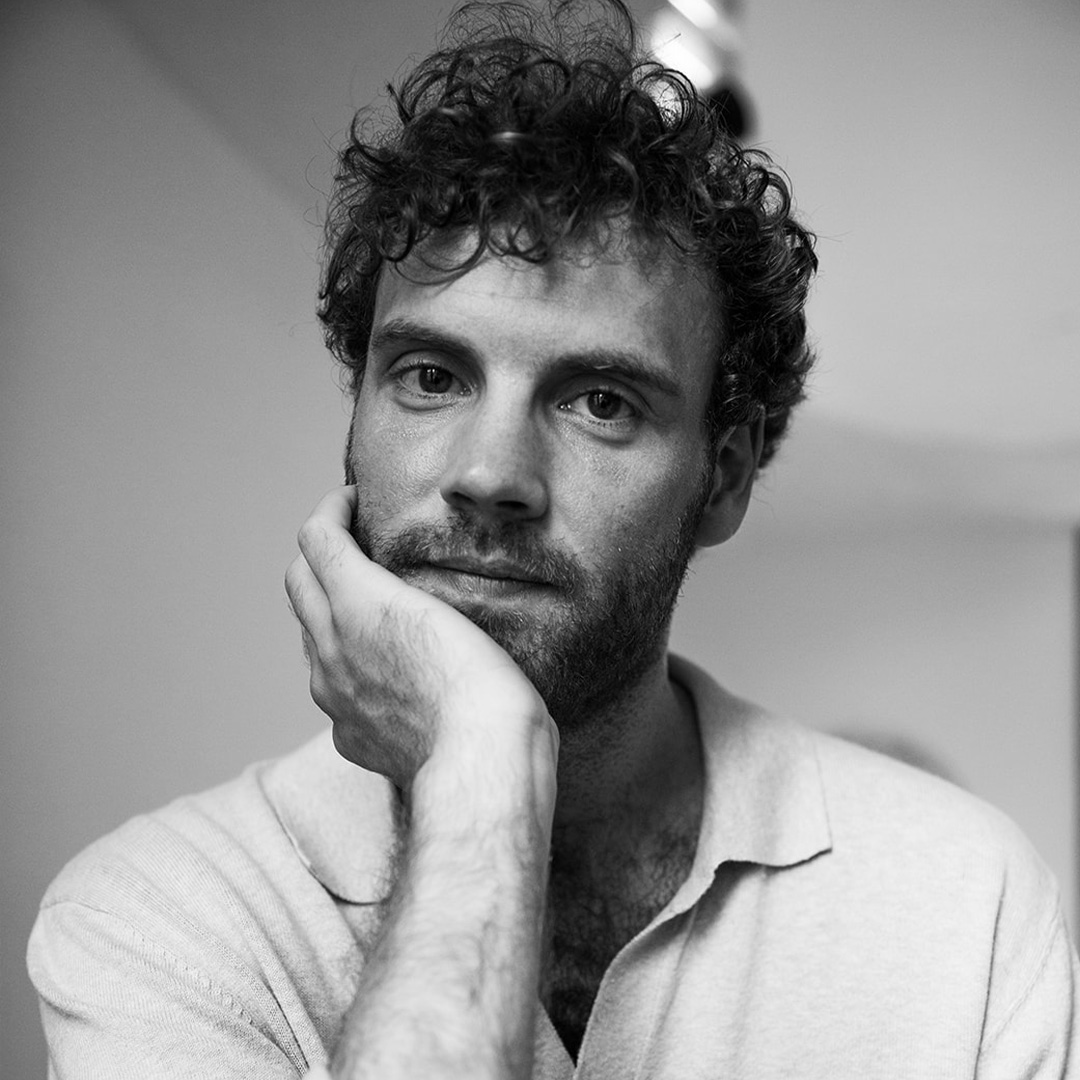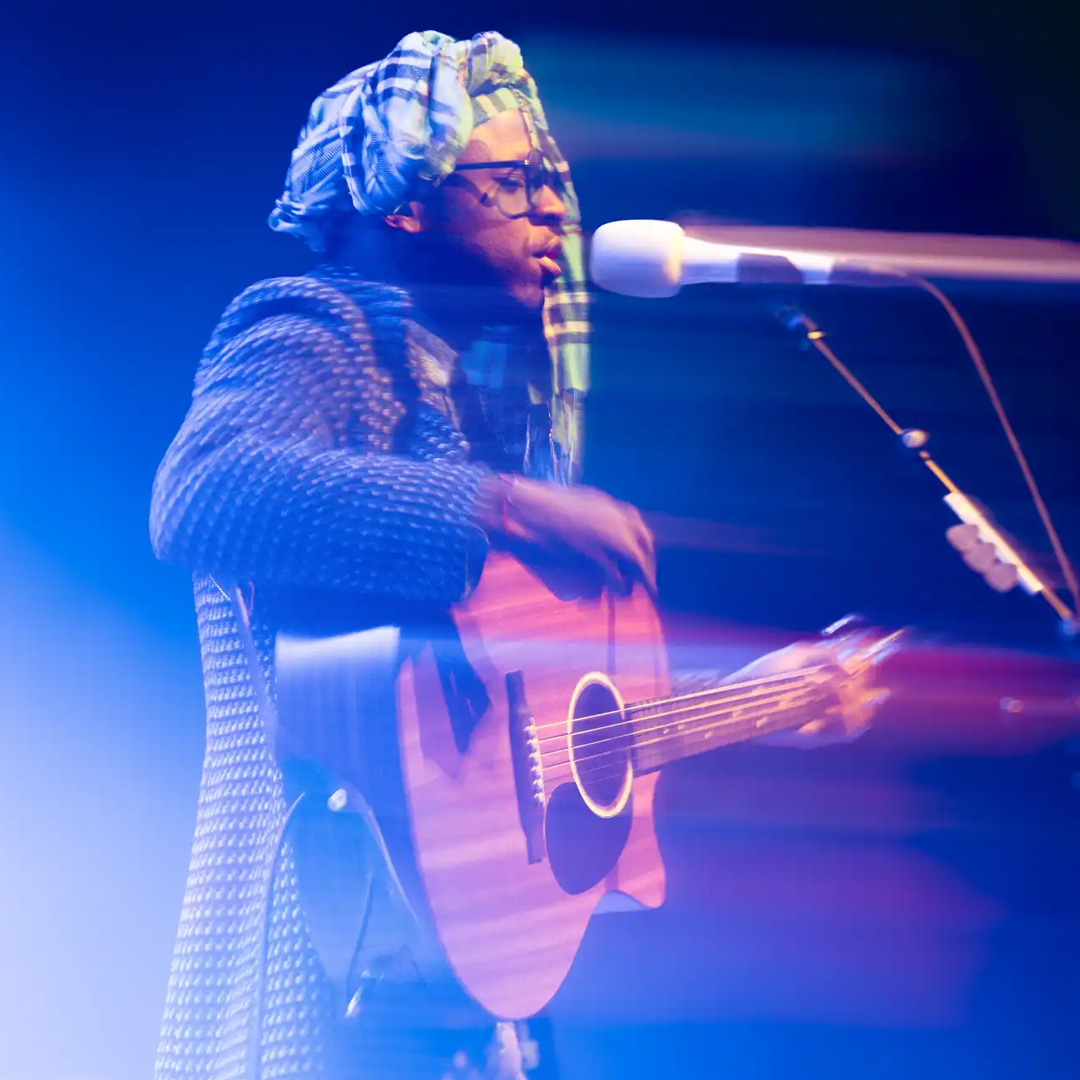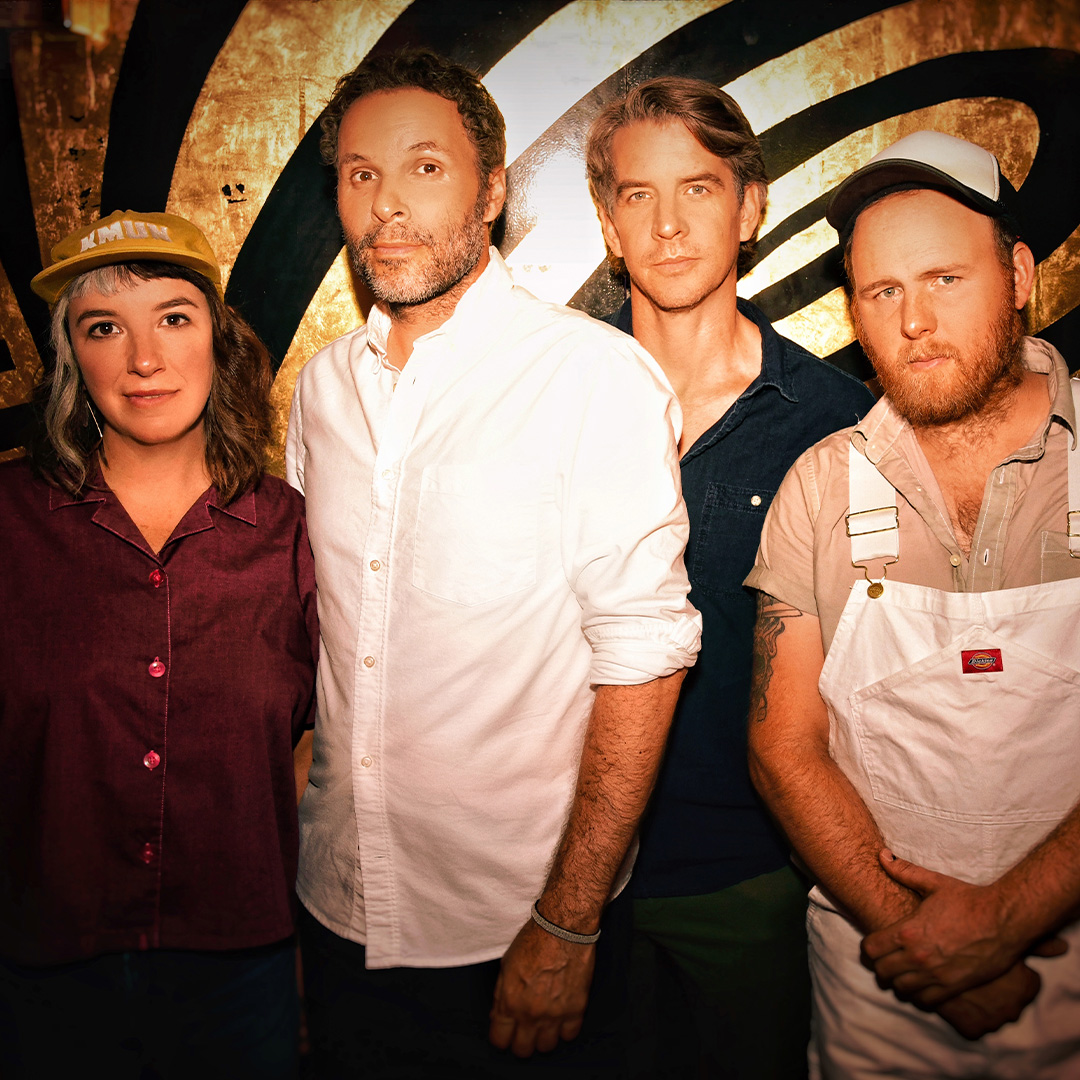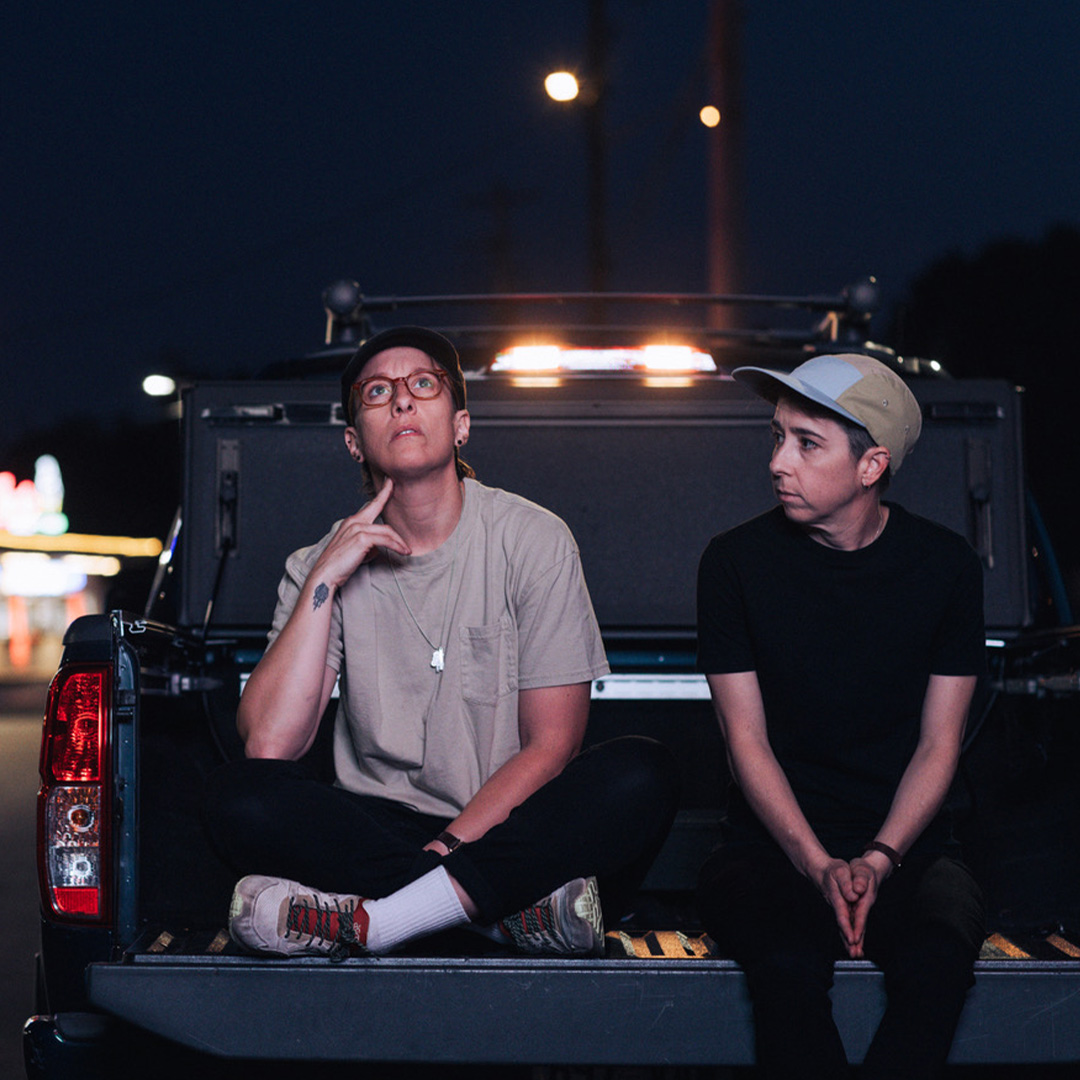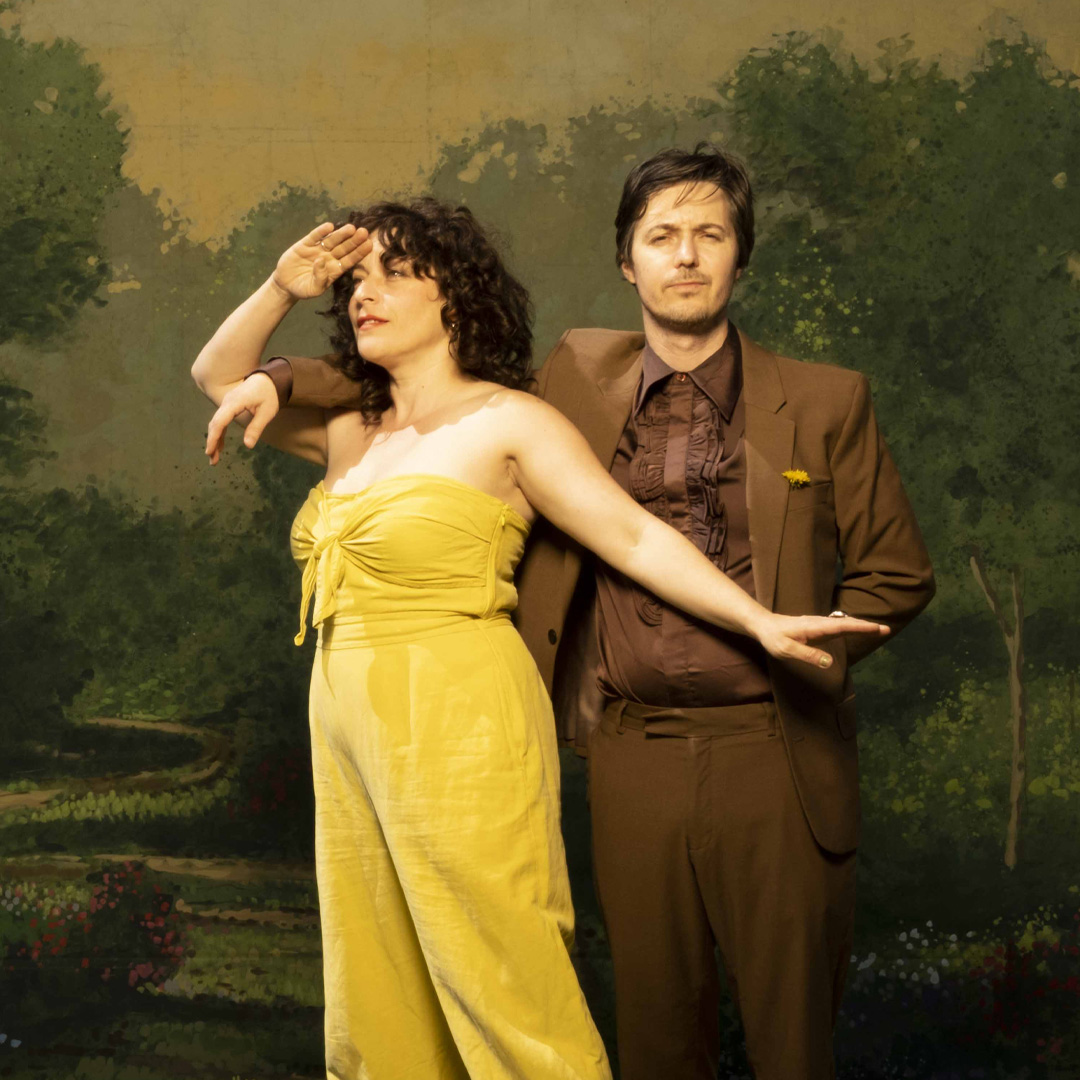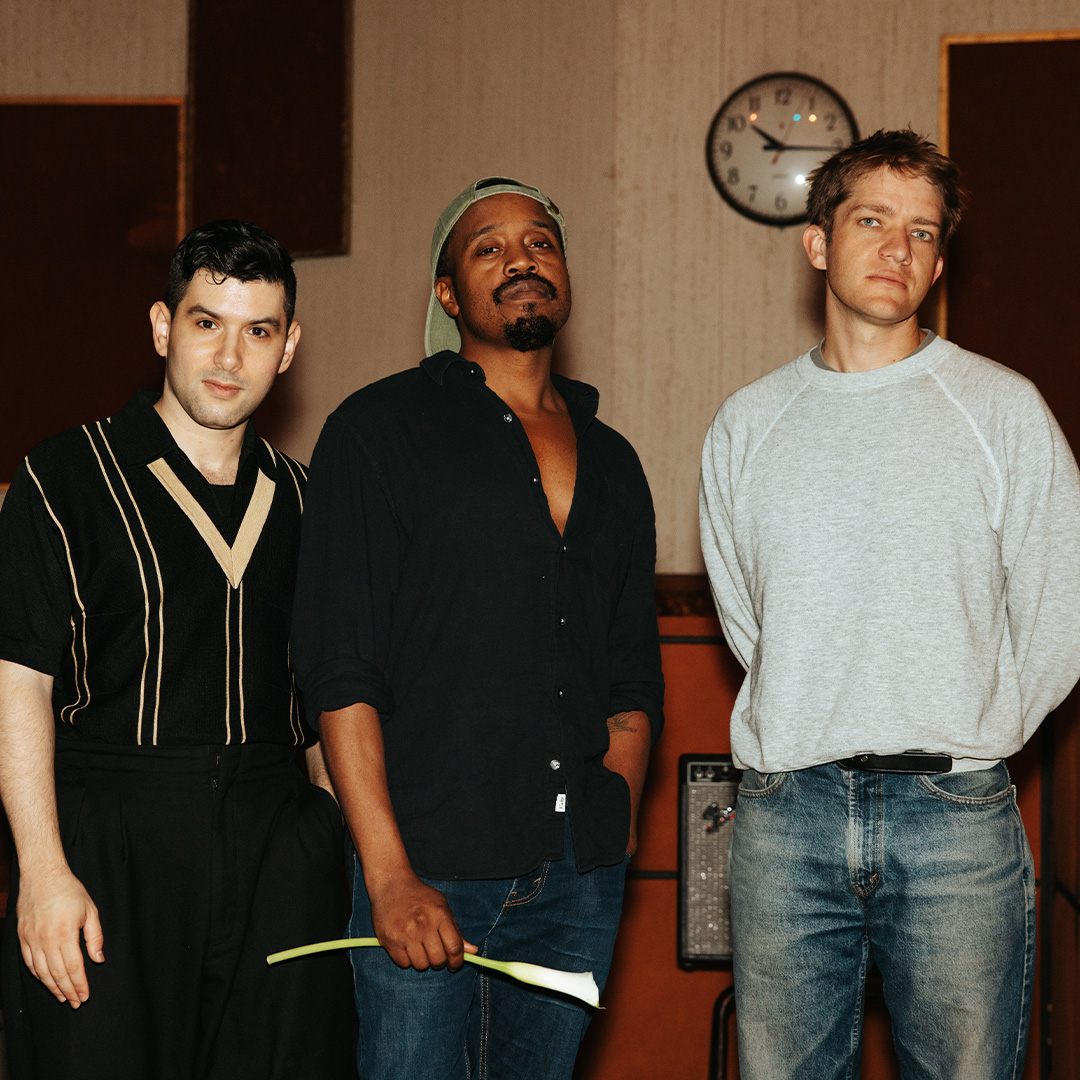Dust off your bell bottoms and feed the goldfish in your platforms! Albuquerque’s premier ABBA tributeband is dripping with glitter and fabbalous gold-lined sonic joy that will make you the dancing queen!
Archives: Artists
Mon Rovia
“I’m Mon, born in Mon Rovia, Liberia. My life can be summed up by being born into a civil war, escaping the life of a child soldier, rescued by the hands of missionaries. Spent a lot of my developmental years living in a variety of places with a number of life experiences. And then layered on top of all of this is the assimilation I felt being a transracially adopted refugee. My music in a nutshell is a culmination of these experiences blended with the empathy I feel for the experiences with others. The mission of my music is to heal with others – with every nation and tongue, in due time.”
Kevin Morby
Kevin Morby is a Kansas City based singer/songwriter. With his seven acclaimed solo albums and myriad records of various collaboration, Morby has become a true musical auteur. His singular vision, evocative lyrics, and aptitude for catchy, dense songwriting has placed him firmly among the ranks of modern
icons. Each Morby record possesses its own unique persona and explores intriguing themes and fertile terrain through shifting, focused textures and dexterous, dedicated skill. This Is A Photograph, Morby’s latest album, finds him making an Americana paean, a visceral life and death, blood on the canvas
outpouring. The creatively invigorated songwriter has managed to align his finest songs, best vocal performances, most incisive lyrics, and his most lush arrangements to date.
Blanco White
Blanco White has already crafted a sound of his own with his off-world explorations of Latin American and Andalusian folk music. On Tarifa, Josh Edwards’ second solo album, he mines new depth within his colourful fusions of folk with indie and electronics, while embracing the thrill of collaboration, discovery and cultural exchange.
In the winter of 2022, Edwards packed his car full of instruments and gear and embarked on a writing trip to Tarifa, the southernmost town in Spain. He’s long been drawn to Cádiz because of its flamenco guitar traditions, stunning architecture and stark scenery. The grass remains green even in the coolest months, and the wind-beaten shores alone would make for good writing inspiration. But this specific trip was even more significant due to a chronic pain condition that had left him unable to play or write. “I did have a real health wobble between the start of 2020 up until spring last year,” he says. “For a lot of that period, especially 2020 and 2021, I was almost completely out of action. It was a really scary time. Since then I’ve recovered really well and feel much healthier and stronger for having gone through it, but at the time I didn’t know if my career was over or if I’d ever be able to tour again. That was the headspace of it. I still live with the condition, but thankfully my pain levels are so much lower and I’ve got my life back.”
“I’d just finished my first record, On the Other Side. The nerve condition started in 2019, and I’d played through the injury touring and recording for about a year, which in hindsight was incredibly stupid. I got COVID and my condition really deteriorated. There was a point where I realised I had to stop trying to write and record. It felt like I needed to set aside all my time to heal, giving that my whole focus. It was a full reset.”
During that healing period, Edwards kept connected with music by consuming as many audio podcasts, stories, and books as he could. Unable to play or write, he tried to educate himself instead, diving more deeply into production and engineering.
“I got obsessed with trying to learn as much as I could, to try to feel as though I was still growing and developing musically even if I couldn’t play my instruments. The knowledge I gained ended up being hugely important in helping me evolve my sound when I did feel able to record and play again.”
After recovering, playing with Brazilian percussionist Pilo Adami (Nubiyan Twist) became an essential part of the early writing process, and eventually led to a partnership across most of the record. That process began with a tentative collection of jam sessions in Adami’s studio in south London.
“It was the first time we’d worked together. We started on something that would become ‘Silver Beaches’, and at the end of the session, it felt like we’d found a kind of gateway track with a vibe I could start pairing other ideas around. Before writing that song, I wanted people to move more at the shows. I’d done the Time Can Prove You Wrong EP which was very minimalist, folky and gentle, and I wanted to do something that was a bit more ambitious and focused on rhythm and groove. The first session with Pilo led to something different to anything I’d done before and I quickly recognised that I could never have made it on my own. We recorded live drums and a whole instrumental on the first day of writing.”
“It’s incredibly exciting when you find a collaborator you gel with. In this case, it was about finding someone with different skills that complemented mine, and different tastes too. But at the same time, it felt like our tastes overlapped in really interesting places. That was what was really exciting about it.” In contrast to this open collaboration was his inward-looking writing trip to Tarifa, which allowed Edwards to hone in on his own ideas. Travel had always been a huge part of the process behind Blanco White, but after COVID and Edwards’ health situation made that impossible, this was the first writing trip in a long time.
“It was the first time I’d been able to really put my foot on the throttle again. I worked really intensely every day. That was super exciting. You can get lost in it if you do that. Writing in the time up to then had felt really tentative. I didn’t want to push things too much in case my condition worsened again. It all felt very stop-start-y, whereas this was a massive cathartic offloading of ideas.’
“From the first record, I recorded a load of demos on really cheap gear and then ended up re-recording the whole album and lost so much of the magic you capture when you’re writing. That moment of discovery is so important, and it’s sometimes impossible to re-capture it. The whole philosophy of the new record was the record button is always on, every idea is always being captured.”
That “always on” recording philosophy can be heard in the album’s first moments, a two-part ambient folk odyssey called ‘Giordano’s Dream’. Part II of the track was formed from two happy accidents – the first with his flatmate Cam Potts Superego), Blanco White’s session guitarist. The pair were playing about with a synth patch Edwards had created for Part I, capturing a glide-based performance that would have been impossible to re-record twice in the same way. That became the basis for Part II.
Then, in another session, renowned drummer Seb Rochford (Polar Bear, Sons of Kemet) added a drum solo in a moment of spontaneity. Within both moments, Edwards has been glad to follow his instincts as well as the instincts of others.
The song itself also acts as a lyrical mood-setter for the whole record, with its focus on cosmic wonder, influenced by ideas like the ‘rare earth’ theory, which outlines our potential isolation in the universe. “Music has always been my vehicle for getting in touch with the transcendent, the mystical and the spiritual” Edwards says. “Especially when you’re pairing it with big reverbs or temple-like spaces designed to help us get in touch with those feelings. That’s kind of how the music is often guiding what I’m writing about. With synthesisers, those spaces can take on a cosmic feel too, something I always felt that song ‘Giordano’s Dream’ had. I’m fascinated by sci-fi and space, and think about that stuff a lot.”
The music’s otherworldly character is explored in the album visuals by artist Luke Insect, a long term collaborator on Blanco White. Drawing on a shared interest in surrealism and an admiration for artists like M. C. Escher, the artwork crosses over into the world building of the music.
“For me most of the songs have a clear time of day that characterises each one,” Edwards explains. “It’s normally something that appears early on in the writing process. Some feel very nocturnal, but others are brighter and feel more associated with morning or daylight. It normally impacts the lyrics and the imagery of the world imagined in each song.”
Luke Insect’s artwork draws on these references to light, creating fantastical distortions of different times of day. The terrain around Tarifa itself is evoked in the main album cover, with a nocturnal piece for single, ‘Giordano’s Dream’.
The otherworldly feel of the music is especially clear in songs like ‘We Had a Place In That Garden’, and ‘Una Noche Más’, which combine bare and emotional lyrics with a tone that hints at the abstract and metaphysical. Edwards has been inspired by other world-building songwriters like Sufjan Stevens, Feist and ambient composers like Hiroshi Yoshimura, who use expansive presentation to express something more intimate and personal.
Atmosphere is a huge part of getting across the cosmic bent of the record, which was carefully worked on by Edwards with collaborations with Nathan Jenkins (Bullion), as well as Pilo Adami. Bullion brought his pedal collection and FX rack to certain songs nearer the point of completion, adding flourishes and delays to expand the space of the music. In the end, however, everything was mixed in the box, something that gave Edwards total control to add and subtract at any moment.
“It meant the process started to feel a lot like painting, where a day’s work could resemble adding a few dashes of paint to the canvas. That work was tonal just as much as performance-based, trying to mix and shape things as we went along. Each Pro Tools project became more detailed, and I continually switched between tracks to try and maintain some kind of perspective.” This approach, as well as close working with his friends meant that Edwards was able to retain full control of his vision from beginning to end.
“I’d worked with amazing mixers up to this point, but it had always been a difficult part of the process because it involves final decisions and letting go, and sometimes a song can disappear in an unexpected direction. I tried on this record instead to work more accumulatively, getting help from
collaborators, but also having the confidence to do more of it myself and be the one to hit the final print button.”
“It’s that thing of learning as much as you can from people who know more than you. But, I had the confidence for the first time to trust in my own taste, and to be confident that if I have a conviction about something, and something feels right, to not run away, but to trust it.”
Ondara
After his Rebirth Tour, Ondara retreated into the world, wandering from continent to continent in search of who he might become in the wake of transformation. From that journey, he has emerged reborn—now blazing a new path as Jet Stone, backed by his newly-formed band, The Americans. This fall, he will tour with The Americans, performing songs from his acclaimed catalogue, alongside new material from his upcoming debut album as Jet Stone and The Americans.
Blind Pilot
The first Blind Pilot album in eight years, In the Shadow of the Holy Mountain emerged from a period of artistic crisis and the radical transformation of their creative ecosystem. “I went through a few years where I wasn’t able to write—I tried therapy, I read books on writer’s block, I went on writing trips, but nothing was helping,” says Israel Nebeker, frontman for the Oregon-bred band. After stepping back and reimagining his songwriting approach, Nebeker challenged himself to write an entire album in a month, then brought those songs to his bandmates with a newfound sense of receptivity. “I told myself that whatever songs came through in that month would be for the love of the band and music we make together,” says Nebeker. “Instead of being controlling in the studio, I wanted to let the songs live and breathe with the band as an entity. By the time we finished, it was the most joy we’d ever had in making an album together.”
Produced by Josh Kaufman (The Hold Steady, David Wax Museum), In the Shadow of the Holy Mountain brings a potent new energy to the elegantly composed folk/indie-rock of past LPs like 2016’s And Then Like Lions. In a profound step forward for the band—whose lineup also includes drummer/co-founder Ryan Dobrowski, bassist Luke Ydstie, and multi-instrumentalist Kati Claborn—Blind Pilot’s fourth full-length unfolds with an exquisite fluidity, fully harnessing the undeniable chemistry. “In the past we’ve always been very serious and intentional about the process, but Josh often encouraged us to throw away our preconceived notions of what the songs were supposed to be,” says Nebeker. “So much of the album came from all of us playing live together, listening to each other and trusting our instincts, and really getting to the core of the song,” Dobrowski adds. The result: the most revelatory expression yet of Blind Pilot’s palpable reverence for music as a connective force.
While Blind Pilot intends to tour principally as a quartet in support of the record, the album includes contributions from longtime trumpeter/keyboardist Dave Jorgensen and vibraphonist Ian Krist. In bringing the album to life, the band worked with a rich palette of instrumentation, handling each track with equal parts extraordinary care and unbridled spontaneity. For both Dobrowski and Nebeker—who formed an early iteration of the band as college students in the mid-aughts—those moments of ineffably closeness serve as the lifeblood of Blind Pilot. “For me making this album felt like celebrating being together and still feeling that deep connection that’s been a throughline for our entire adult lives,” Dobrowski says. “One of my very favorite things about music is the way it not only connects us as bandmates, but allows us to connect to an audience—and then within that audience, people end up connecting with each other. It’s this powerful thing that’s unlike anything else, and in a way it’s kind of like magic.”
RELAAY
RELAAY is an indie pop band from Louisville, KY. They strive to make the kind of music they would have loved listening to as teenagers. But more importantly, RELAAY is being the band they needed to see when they were young. Audrey Cecil and Amanda Lucas have been through a lot. Together. Having met as young kids in Kentucky in the late ‘90s, where being different was generally discouraged, and rigid norms steamrolled young people who didn’t fit neatly in conventional boxes, Audrey and Amanda have forged a life-long friendship and creative partnership, one based in shared struggles, in an unforgiving, male-dominated industry. In their coming of age, they had no access to music and entertainment that truly reflected queer culture or identities. They strive to be the representation they needed as kids by showing up as who they are without reservation. Audrey and Amanda’s contrasting personalities aid in creating music that doesn’t feel genre-specific. These personality differences peek through in the studio and on stage, where their sibling-like relationship shines.
Their debut album, Midtempo Magic, tackles soul-crushing loss, impossibly difficult conversations, and good, old-fashioned hard knocks. And much like Audrey and Amanda themselves, Midtempo Magic is both yin and yang. Danceable and exhilarating, yet contemplative and comforting. A reminder to the listener that, if you stay true to yourself, you can be defiant and welcoming, uncompromising and inclusive all at once.
Shovels & Rope
SOMETHING IS WORKING UP ABOVE MY HEAD
One night in the middle of the night there were a series of noises coming from above which lead to a series of thoughts. It sounded like something was working. Building something… A nest for its family? A trap for its prey? This led to more thoughts about unseen things at work. A God? A voice in your head? It all feels kind of made up until someone responds to it.
Less means more. That’s kind of always how it’s been with us. This time the rules were simple: we can only use what we work with live and whatever we put down on tape must be accomplishable on a stage in a live setting. That’s always seemed to be when we’re at our best. Or most twitchy. Many times we’ve made records that we loved and then, after figuring out how we’d perform it live, we end up falling in love with the live arrangement because being a 2 piece band, it took some real risk and struggle which led to innovation, which gave it a whole new life. (Consider the tortured grape.) So with this one we just started there and worked backwards. The result encapsulates, more than anything we’ve done before, the sound of our live performance. Resulting in what one might consider by definition, a definitive album.
The summer and fall leading up to recording we spent writing songs, hanging out with family in Colorado, and playing shows opening for The Wood Brothers and Gregory Alan Isakov, both of whom have large audiences. So each night we were playing in front of a lot of people, many of whom had never heard of us. We decided to take those opportunities to rattle our comfort zone cage and try out a bunch of brand new, just written songs and basically learn how to play them in front a few thousand people. The songs would grow and change show to show, sometimes for the better and sometimes for the worse. Maybe we go down in flames? Maybe something beautiful happens while it’s burning? We happily embraced the chaos. That’s kind of always how it’s been with us.
We had a new song that initially neither of us thought that much of called ‘Love Song From A Dog.” During one of the first nights of the Isakov run, we decided on stage, mid set, to try it out because the show was going well and the audience was warm. And it kind of killed. People honestly wouldn’t shut up about it. Not a brag more like a phenomenon or a weird dream. It became a fan favorite moment of our set each night and honestly in all the years of doing this we’ve never had so many people send us messages or reach out about any one specific song as they did this one. It just goes to show us that we don’t know anything. When it came time to record it we thought it’d be fitting and a nice touch to have Greg sing on it since it was his audience who basically fostered it into being by giving us the confidence and encouragement we needed to see it the way they did. He generously obliged and the song was instantly elevated by the sincerity and richness of mood that colors his voice.
The two of us can’t help but be obsessed with duality. The song ‘Two Wolves’ is a meditation about two conflicting energies competing for power. The first time we ever played it was on New Years Eve in an arena opening for Tyler Childers in front of 15k or so country music fans who surely were like “what the hell is this,” but to us it seemed 100 percent appropriate because it just feels like an arena type song. A fuzzy, thick riffed stomper with a meditative head bob refrain. So we opened with it because, well.. it felt like we had to.
For those who are new here we’ve spent the last decade or so bouncing around in the ‘Americana’ realm quite a bit. Getting branded into that world was admittedly a bit of a head scratcher for us as we’ve always identified as more of a rock band (though we do think of ourselves as folk songwriters and yarn spinners, and we do harmonize well together) but the people were paying attention and we were building a fan base so we kind of felt like “who were we to tell them who we weren’t?” But when you go all the way to Europe and are standing on a stage in front of a few hundred Scandinavians who are dressed in head to toe denim and cowboy hats, we can’t help but feel like we’re about to confuse some people. We will often find ourselves playing an outdoor, ‘free in the park’ type of concert series where a Male and Female with 2 guitars and beautiful harmonies will be booked as the opener, and then we’ll take the stage and proceed to be a little louder and maybe a little more brash than was anticipated. It’s always kind of been this way with us. The joke in our camp when this happens goes something like: And for tonight’s entertainment, we have for you “The What We Thought They Were’s” followed by the “Louder Than We Thoughts”! Recently we did a gig where the spokesperson said to us just before we went on, ‘so maybe don’t come out with your heaviest guitar stuff and your 808 bass bullshit right off the rip…there are kids and old people here and they’ll leave” (he was trying to be helpful). We politely told him “Don’t worry, we have a plan”.. .and then again opened with ‘Two Wolves,’ with it’s loud guitar stuff and it’s 808 bullshit, followed by a dynamic set where we touched on all the different things we do and everyone proceeded to have a great time. That’s kind of always how it’s been with us.
“Something Is Working Up Above My Head” is a catalog of vulnerable characters with sweet and sordid narratives.
‘Colorado River’ is a song about a boy and his Dad disposing of bodies in various ways as the water level recedes and dark surprises surface. The hot dog bun line was initially supposed to be a place holder because it sounded funny and it rhymed, but then we sang it so many times over the summer that it built a little hot dog shack and moved in forever. I still think it’s kind of dumb but it’s also kind of great. For those who pay attention, it’s a pretty obvious John Prine nod. I’d like to think he handed us the hot dog bun like a relay baton on his way to the great mystery. Macabre pairs well with a side of humor.
‘Piranhanana’ is about a boy growing up in a house of sex workers and being fine with it with a little meditation, while his sister struggles to find her zen. ‘I’d Be Lying’ is about navigating a crisis with a long time friend. ‘Double Lines’ follows the journey of a young woman thru pregnancy tests, covid tests, and various other forms of duality and two-ness.
‘Something is Working’ and ‘Dass Hymn’ (referring to Ram Dass) were the last 2 songs written and added to the collection of songs. They book end the record with questions about what, if anything, is pulling the strings? In the closing moments of the last song, 3 generations of our family all sing together about how nobody knows what happens at the end. And in all the not knowing, it’s comforting to sing with your family.
Durand Jones & The Indications
durandjonesandtheindications.com
Durand Jones & The Indications are equally beloved for their energetic, joyous shows, dual lead singers, and thoughtful songwriting. From an Indiana basement (where the band recorded their 2016 self-titled debut LP as college students), the band has catapulted into the soul limelight and onto an international stage. Pushing beyond the boundaries of the funk and soul on their previous releases, The Indications’ third album, Private Space, unlocks the door to a wider range of sounds and launches boldly into a world of synthy modern soul and disco beats dotted with strings. Anchored by a crate-digging sensibility and the high-low harmonies of Aaron Frazer and Durand Jones, Private Space shows The Indications’ mastery at melding revival sounds with a modern attitude. It’s an organic, timeless record that’s as fresh as clean kicks and familiar as your favorite well-worn LP.
Ani DiFranco
These days, every artist’s album needs to have a story. The music can’t speak for itself.
But after 22 records, why can’t Ani DiFranco’s work speak for itself? Yes, her forthcoming album is shaped by stories — ones about reproductive freedom, the double-edged sword of the pandemic, identity and ever-evolving belief systems that have shaped each of its 11 songs. There are songs that were written in 2011 and in 2022; some for musicals, others for children’s books. The album isn’t linear, but it is inherently teeming with DiFranco’s spirit.
It was paramount to the folk-feminist hero that listeners not be saddled with preconceived notions while diving into her 23rd album Unprecedented Sh!t. “I believe there is a rhyme and a reason as to why these songs have come together in this way now and I want people to experience this album as a journey, a piece of art, without being influenced by a cacophony of surrounding narratives.”
While many of DiFranco’s albums were made more insularly, she’s opened herself up to collaboration in recent years. For 21 of DiFranco’s 22 albums, she opted to self-produce. With Unprecedented Sh!t, she wanted to try working with a producer and tapped BJ Burton, who produced one of her favorite albums, Bon Iver’s 22, A Million. With Burton’s help, largely from afar, they created soundscapes often using only DiFranco’s voice and guitar as the raw materials and manipulating them with effects and filters. “I really wanted to lean into the power of machines in a way that I never have before, so BJ and I communicating through many layers of them in order to collaborate, seemed apropos. This record was made almost entirely by me and BJ alone, bouncing things back and forth.”
The title Unprecedented Sh!t is not only representative of how much of a sonic departure the 11-track album is from Ani’s other work, but also a political and social commentary on the current state of the world. “We find ourselves in unprecedented times in many ways, faced with unprecedented challenges. So, our responses to them and our discourse around them, need to rise to that level.”
The lead single of Unprecedented Sh!t, “Baby Roe” — an anxious folk number that explodes into an industrial-tinged crescendo — embodies that ethos. Inspired by Joshua Prager’s literary masterpiece The Family Roe: An American Story which digs into the history of how abortion became a strategic tool for the right to gain power, “Baby Roe” widens the lens with which abortion rights are viewed to include an existential awareness of non-duality. Of the song, DiFranco says, “In Prager’s book we meet all the characters involved in Roe V. Wade, including the adult child of Norma McCorvey (aka Jane Roe), born and adopted-off in the course of her mother’s quest for the right to a legal abortion. Baby Roe, unaware of her role in history until she was an adult, remains, nonetheless, in support of a woman’s right to choose. As I would be. Life is much longer than the ego would have us believe. It transcends the body, any individual body, and is infinite in fact. Consciousness need not be born into any specific body at any specific time to be manifesting to its fullest. This is one of the ego’s many illusions.”
The crushing weight of patriarchal systems on the female psyche and the complicity of women in their own oppression are focal points of the psych-folk number “You Forgot to Speak.” “Between first sleep and second sleep / I stare into the dark / and I can feel there are two of me / so I put um both on the ark,” Di Franco sings with a dreamy lilt. “New Bible” is a rallying cry for a new world order centered around DiFranco’s gravelly vocals: “I think we should have a new bible / that just says: mother earth /and I think men should stand down when women give birth.”
On “Virus,” a symphony of sensual jazz, hand-drumming and Nine Inch Nails-style guitar drops, which samples her 1995 classic “32 Flavors,” DiFranco navigates the paradoxical nature of the pandemic, which brought both healing and suffering. “I was given permission to stay home with my family, so it was an incredible gift on that level. It was also a gift to the planet, for our species to shut up and sit down for a minute. Of course, it was also an incredible struggle for humans, full of pain and suffering.” “Spinning Room” visits the related subject of an earth besieged by human pollution and exploitation and seems to come from the voice of nature and the voice of the individual at the same time. Within the world of the song, these voices are presented as one and the same, inseparable.
Against a backdrop of finger-picked guitar, “More or Less Free” explores the dynamic of a friendship with someone who is serving life in prison and how they exist throughout the world. “I never thought that I was special / been that way since we were kids / there’s a million people that are like me / in this world, stuck doin bids.”
Inspired by Ed Yong’s tome about perception An Immense World, DiFranco contemplates the lives her 1960s army boots have lived and explores the concept of subjective realities in “Boots of a Soldier.” “Wherever these boots have been, wherever they walked, now they’re on my feet and they’re walking my life. If only I could know the story these boots could tell! It boggles the mind, the radically different umwelts playing out around us at any given moment. This animal, this tree, this guitar I am holding, these boots. The multiplicity of perspectives and stories are unfathomable.”
What is at the heart of the album is its final track, “The Knowing,” a tender, existential lullaby that inspired DiFranco’s eponymous 2023 children’s book and explores and affirms the importance of selfhood while conveying how the concept can be limiting. In a lot of ways, DiFranco believes if there’s an overarching message to come from her record, it’s in this song; the idea that we can harness the power and value of identity without being limited to it. Identity is a tool perhaps, for understanding and affirming diversity, but beyond that, it is an illusion, and our true nature exists on a level wholly more primary than any of the stories we tell.
DiFranco has been known as a feminist icon and pioneer of DIY for nearly 35 years. Since founding her record label Righteous Babe Records in 1990, she has released 22 albums, traversing folk, punk, hip-hop, soul and electronic genres and addressing a range of autobiographical, political and social issues. While her first four albums Ani DiFranco (1990), Not So Soft (1991), and Imperfectly (1992), Puddle Dive (1993), harnessed a more raw sound, Out Of Range (1994), Not A Pretty Girl (1995) and Dilate (1996) were more rooted in DiFranco’s folk ethos. She released eight more albums over the next 10 years, earning a Grammy Award for her 2003 album Evolve and numerous nominations. Her most recent albums include 2008’s Red Letter Year and 2017’s Binary. Most recently, fans have been thrilled by 2021’s Revolutionary Love and the 25th Anniversary Edition reissues of both her iconic 1997 live album Living In Clip and 1998’s Little Plastic Castle, via Righteous Babe Records in 2023.
DiFranco is also a poet, author and Broadway performer. She released a collection of poems and paintings titled Verses in 2007. Her memoir No Walls and the Recurring Dream was a New York Times Top 10 best seller in 2019, and her children’s books The Knowing and Show Up and Vote are out now. DiFranco also recently completed a 5-month run on Broadway as ‘Persephone’ in the Tony and Grammy Award-winning Best Musical, Hadestown.
